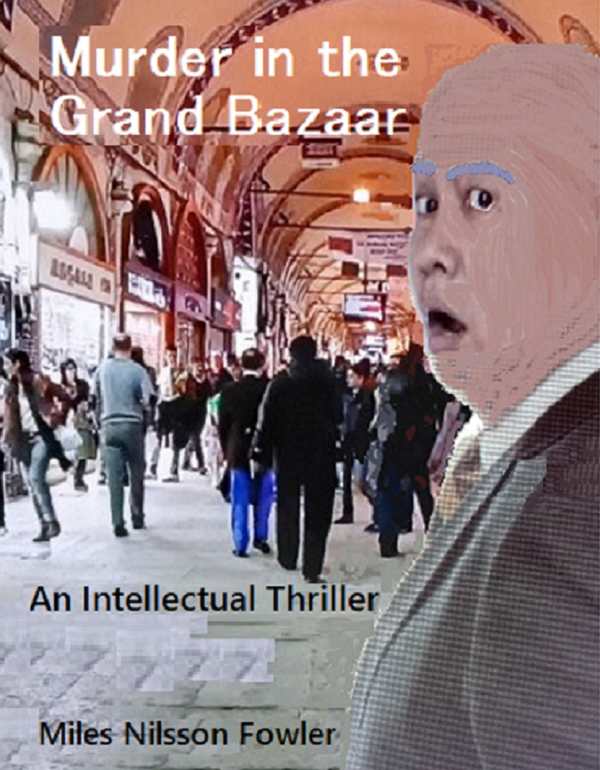Murder in the Grand Bazaar
An Intellectual Thriller
A knowledgeable professor is thrust into a murder investigation in the information-rich novel Murder in the Grand Bazaar.
In Miles Nilsson Fowler’s novel Murder in the Grand Bazaar, a murder involving early Christian history leads to an international chase.
Felix, an assistant professor of Greek and Hebrew at a New York seminary, travels to Istanbul in order to authenticate an ancient manuscript that was smuggled in from Egypt and is being held by an antiquities dealer. But on his way to the meeting, Felix encounters a police inspector and learns that the antiquities dealer was murdered. Further, the codex has been stolen. Felix’s expertise is requested, thrusting him into a dangerous international conflict for which he is ill-equipped.
The police inspector’s credibility is placed in question because of his decision to involve a murder suspect in his investigative process. The scene in which Felix becomes an active participant in the case strains credulity as well, with neither man acting in a professional manner: the police inspector divulges information about the case to Felix and asks rapid-fire, nonsensical questions, such as whether Felix is in the CIA. And the inspector’s colleague flirts with Felix at the murder scene, introducing a romantic subplot at an awkward time. Further, at one point Felix notes, “I still don’t know how I can be of help,” making him a lackluster lead.
As the novel progresses, hyperspecific information related to early Christian history and theology impedes some of its most consequential scenes, including scenes in which Felix is in danger. Indeed, Felix is prone to going on multipage tangents on topics such as the translation of the Bible from Greek into Coptic; in tone and form, such speeches are dry are uninvolving. Further, Felix switches between topics with dizzying speed, as when he discusses Turkish grammar in one moment and shifts to the topic of missing his ex-boyfriend in the next.
Felix’s expository passages are often broken up by his stilted conversations with others. These are used to convey still more contextual information, but they feature the same jarring topical shifts as the narration itself. Further, in conversation, most people sound alike—their tones are either melodramatic or blunt, depending on the situation. Because of this, even the book’s villains sound more comical than scary, seeping tension from their tactics. Indeed, even when Felix is in supposed fear for his life, the suspense is light: the nuances of biblical history and other topics are always centered better than the book’s potential for violence. Because there is no real sense of danger established, there is little catharsis to be had at the novel’s somewhat inconclusive close.
Interludes regarding Christian history interrupt an involving murder mystery in the novel Murder in the Grand Bazaar.
Reviewed by
Leah Block
Disclosure: This article is not an endorsement, but a review. The publisher of this book provided free copies of the book and paid a small fee to have their book reviewed by a professional reviewer. Foreword Reviews and Clarion Reviews make no guarantee that the publisher will receive a positive review. Foreword Magazine, Inc. is disclosing this in accordance with the Federal Trade Commission’s 16 CFR, Part 255.

